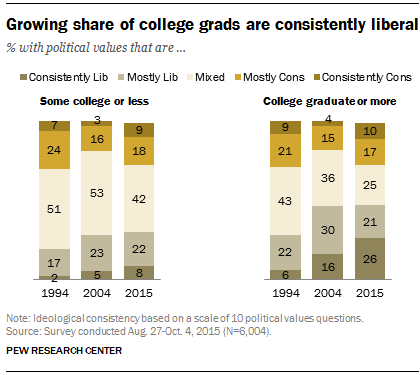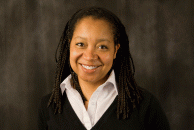The most interesting classes I teach involve building interdisciplinary studies and multicultural urbanism. Maybe because both courses ask students to recognize and respect diverse perspectives and different ways of knowing the world.
In multicultural urbanism, I ask students to step outside of their social worlds long enough to learn how other social and racial, ethnic groups have been impacted by a long history of social and economic policies. It always surprises me that so many students are not aware of the historical causes for social division and the disparity we see in society. In the interdisciplinary classes we learn how to understand the basis of disciplinary research, the value of disciplinary learning and opportunities of integrating various ways of understanding and interpreting research and knowledge products.
In both classes I am teaching the value of diversity and the importance of integration. We value diversity because a diversity of perspectives and experiences teaches us about whole issues and problems. Solving our wicked problem relies on understanding their complexity and our perceptions of it.
The interdisciplinary class studies learns to appreciate the value of disciplinary silos, but also to recognize opportunities lost because of isolated perspectives. The multicultural urbanism class exposes voices of the past and an historical basis for understanding the mechanics of divisive policy, and the consequences of economic and social stratification. There is a clear application of interdisciplinary skills and practices that set the stage for teaching both – appreciation for diversity, a tolerance for dissonance, empathy and building trust in the perspectives we do not share.
We are all aware of the political and social division in our country right now. We, in the social sciences, are acutely aware of the consequences of polarization. We, the highly educated population of the country, may also be responsible for it. It was surprising for me to find out that the most highly educated of us are also the most rigid and inflexible in terms of political and social ideology. According to the Pew Research Center, holding a graduate or post graduate degree indicates a high likelihood of holding consistently and “predominantly liberal positions along a range of political values.” Those with high school or a bachelors degree are more likely to express interest in “a mix of conservative and liberal opinions.” Having liberal values in and of itself is not polarizing. However, the question of tolerance and flexibility, and the ability to use ethical consciousness in teaching is salient.

Omitting some parts of our social complexity (its divisive and intolerant underbelly and all) left us all unaware of the state of our community and shocked at the result. A deeper commitment to building and teaching integrative skills, and a conscious appreciation and curiosity about others – other people, other political leanings, other races, other worldviews, other sexual identities, other gender dispositions, other disciplinary interpretations, other methods on inquiry, other languages, other technologies, other perspectives – may be in our movement toward interdisciplinary research. Somewhere, Einstein is quoted as saying “we cannot solve our problems with the same thinking we used when we created them.” I’m curious as to what our part, as public university educators, can be in setting the example and learning to solve our problem of polarization with different thinking as well as different teaching.
It is highly probably, that promoting and supporting the skills of effective communication and a tolerance for dissonance as a civic duty could help. One thing is for sure, we must, as Social Science teachers, take a responsibility in helping to armor our students to support an appreciation for our differences and to seek an integration of perspectives and world views. This means teaching the skills for interdisciplinary research – perspective taking, humility, empathy, and integration as basic skills and behaviors for a more culturally competent and politically integrated future.
 Dr. Lisa Turner de Vera is the Associate Director for Interdisciplinary Programs in Social Science and an affiliated Faculty in the Department of Urban and Regional Planning.
Dr. Lisa Turner de Vera is the Associate Director for Interdisciplinary Programs in Social Science and an affiliated Faculty in the Department of Urban and Regional Planning.





